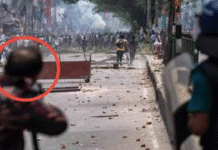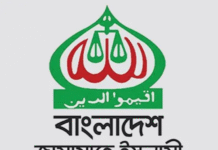Govt to outsource operators to check vehicle fitness

As part of decentralization of service, BRTA is developing a guideline in this regard, expecting to complete it by June this year
In order to reduce the sufferings of vehicle owners, the government is planning to outsource operators who will check the fitness of motor vehicles at circle offices of Bangladesh Road Transport Authority (BRTA) all across Bangladesh.
As part of decentralization of service, BRTA is developing a guideline in this regard, expecting to complete it by June this year, said officials.
According to a recent World Bank report ‘Delivering Roads Safety in Bangladesh,’ the BRTA plans to register and license motor workshops in accordance with their capacity, assessed in terms of capability of testing equipment and space to conduct vehicle test runs.
According to the report, A-grade workshops will have authority to check the fitness of heavy vehicles like buses, trucks, and minibuses. B-grade workshops will be able to check SUVs and sedans, while C-grade workshops will be authorised to handle motorcycles and auto-rickshaws.
BRTA Director (Operation) Sitangshu Shekhar Biswas told Dhaka Tribune that they are preparing the guideline to outsource operators for checking fitness of motor vehicles.
“The operators will only check the fitness and submit reports online. BRTA will finally issue the certificates,” he said.
However, the official said operator categories have not been finalized yet.
The Ministry of Road Transport and Bridges has decided that motor vehicle fitness tests would be outsourced to private entities as BRTA fails to do it properly.
According to the decision, only designated motor workshops will issue vehicle fitness certificates.
However, a seven member committee recommended only checking the fitness. The committee was formed in August 2018, following a 2011 decision of the Road Transport and Bridges Ministry.
BRTA Director (Road Safety) Sk Md Mahbub-e-Rabbani told the Dhaka Tribune: “We are avoiding third party organizations like workshops or garages issuing fitness certificates, as there is a chance of malpractice or abuse of power.”
Many developed countries, including Australia and Canada, use private entities for checking the fitness of motor vehicles and issuing certificates under the supervision of concerned authorities.
Commending the decision, Bangladesh Road Transport Owners’ Association Secretary General Khandakar Enayet Ullah said currently they lose valuable time waiting in line for the whole day at the two circle offices in the capital for vehicle fitness tests.
The BRTA is responsible for the inspection and fitness certification of vehicles after checking 42 items. But it is an uphill battle with only 41 inspectors who face the enormous task of examining the fitness of more than two million vehicles in the country.
According to the BRTA, more than 55,000 vehicles have not had their vehicle fitness certificate renewed for more than 10 years.
Many vehicle owners are reluctant to bring their vehicles in for fitness tests because of the long lines.
Under these circumstances, many transport owners collect certificates through brokers without getting their vehicles checked.
Prof Dr Shamsul Hoque of the Civil Engineering Department at BUET said: “What BRTA does in the name of fitness checking is a mockery.”
He recommended the authority enlist only skilled institutions for fitness tests and ensure accountability.
Further initiatives by the government
The government also plans to develop infrastructure and bring new technology for testing fitness of motor vehicles to meet the rapid growth of motor vehicle purchases.
BRTA is developing a vehicle inspection centre (VIC) in Mirpur beside its regional office.
“A tender will be floated soon to develop the 12-lane capacity VIC in Mirpur. It will be operated by a third party organization, but fitness certificates will be issued by BRTA,” said Mahbub-e-Rabbani.
All motorized vehicles are liable to annual inspection and road tax with the exception of two-wheel motorcycles and private cars which are not more than five years old. Inspections are mainly conducted visually with no automated assistance. In 1999, under an ADB project, five semi-automatic VICs were established—two in Dhaka and one each in Chittagong, Khulna, and Rajshahi (ADB, 2007).
However, technical issues hindered their effective operation. The government plans to establish 21 new automated centres for testing both vehicle fitness and emissions within the next five years. The plan includes the rehabilitation of four of the five original semi-automatic centres.
Apart from the undertaken project, the government plans to develop VICs in every district.
“We have decided to issue fitness certificates from every district after building the inspection centres,” said Obaidul Quader, on February 5, during a press briefing at his office.
On the same day, the Road Transport and Bridges Ministry issued a circular saying private car owners will get a two year instead of a one year fitness certificate, from now on.
The government has been taking such initiatives to bring discipline to the system, said BRTA Director Mahbub-e-Rabbani.









